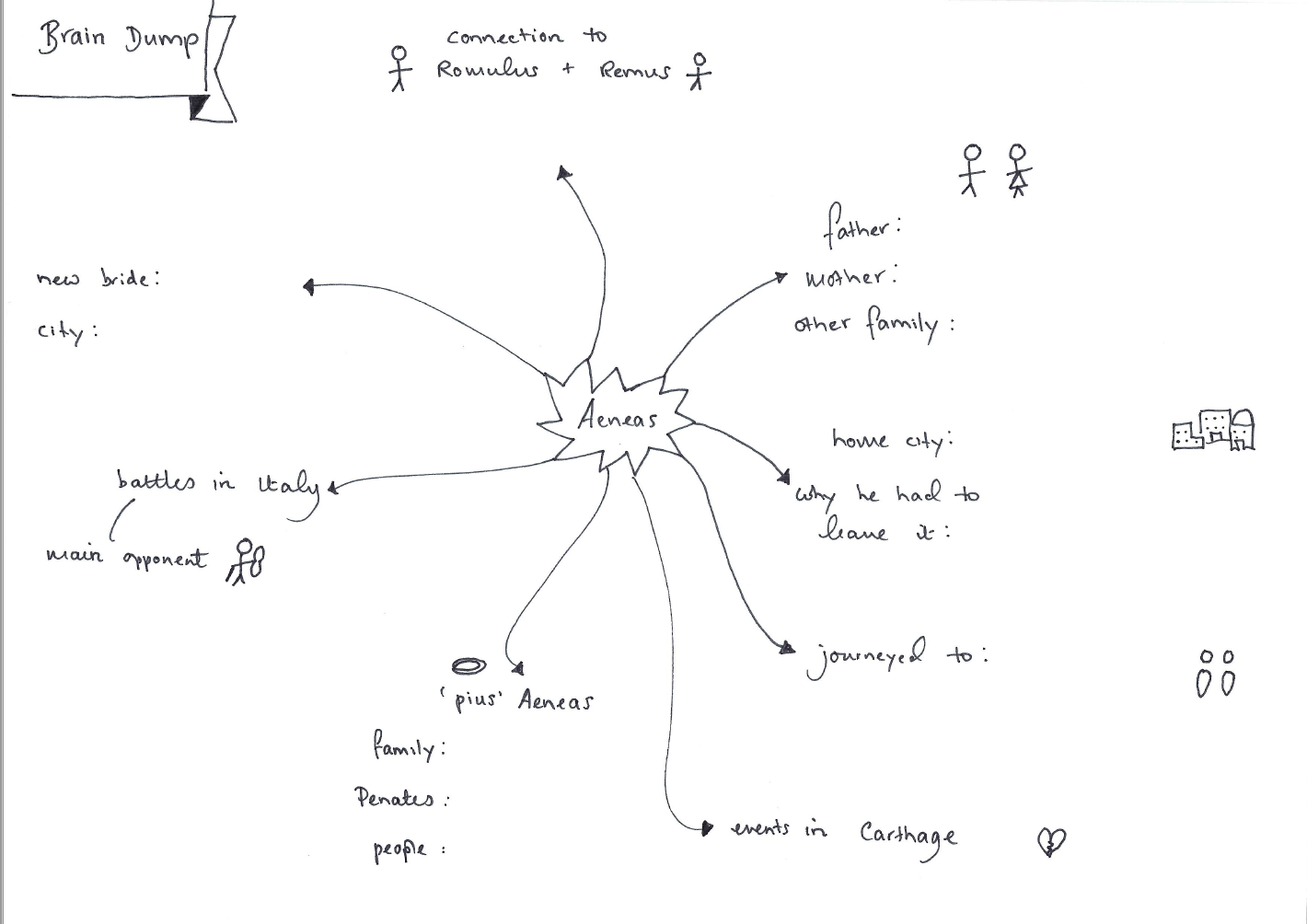Retrieval Practice in Classical Civilisation
This term I’m part of the Inner Drive Cognitive Science Network. It’s been fantastic – a weekly webinar on an aspect of cognitive science in the classroom e.g., retrieval practice, interleaved learning, cognitive load theory, as well as a network hub (on Slack, I think), and the opportunity to visit other schools and see how insights from cognitive science are informing their schools.
I was introduced to the term ‘retrieval practice’ a couple of years ago. I’d always thought reviewing past learning in a lesson was important to ensure students could link the new material to previously met material, but I’ve really made it a standard practice for my lessons now. Kate Jones, in her brilliant book ‘Retrieval Practice: Research and Resources’ defines it as ‘the act of recalling learned information from memory (with no or little support) and every time that information is retrieved, or an answer is generated, it changes that original memory to make it stronger (Jones, 2019:15)

When Bradley Busch from Inner Drive came to school last year for our January INSET, he enumerated a number of advantages of retrieval practice as a standard element of every lesson, based on the Roediger and Karpicke 2006 paper:
- retrieval practice creates connections between new and existing knowledge;
- it strengthens memory traces;
- and ensures that memory is ‘robust under pressure’.
- it means that the key information is more likely to move from working memory to long term memory;
- and then there’s the ‘Matthew Effect’ – the more you know, the easier it is to know more.
So how have I been using it for Classical Civilisation?
Socrative Quizzes.
Ben Tanner in an excellent Keynote Educational course on the new (at the time) GCSE syllabus introduced me to Socrative which is fantastic for quizzes. You can choose multiple choice, true/false and short answer options and it marks the first two types for you (bonus for teacher workload!), and then manually mark the short answer options. I do this at random, unexpected points in the GCSE course, and occasionally, with notice given and revision time scheduled, and the students seem to love it! I keep it low stakes – there’s no pass mark and no preparation needed most of the time, so students don’t get anxious and quite enjoy the challenge.
Brain dumps
I think this term was coined by Pooja Agarwal, a cognitive scientist with a great website for ‘free recall’ or ‘jot down what you know’. I have scaffolded ones with prompts – see the image for my Aeneas brain dump – but working from blank paper is even better if possible. Students jot down everything they can remember about the topic. Students often think revision = re-reading and highlighting notes, and so getting them to practise free recall really shows them what they know.
The Walking Chocolate bar.
I was G&T Coordinator for a while and went to the Optimus More Able conferences. At one of these, I picked up the idea of the walking chocolate bar, which is a type of collaborative brain dump. You have a piece of paper (I use brown to add to the idea of ‘chocolate’) and fold it into eight segments. Each student writes as much as they can remember in the first segment. They then walk round the classroom to give it to a second student to write down different information in the second segment. And so on, until all 8 segments are filled in. Once you get to the sixth student, you tell them to check earlier info and correct any mistakes. I then take in all sheets, look through them to check for misconceptions/inaccuracies and award stickers to the 8 students who contributed to the best sheet.
Retrieval Grids.
This comes from Kate Jones again and is a 4×4 grid with questions in 4 colours: 1) last lesson, 2) last week 3) last month and 4) last term. Points are given accordingly – 1 for last lesson, 2 for last week, and so on. Students answer these and amass a score. This makes for a good think-pair-share activity too. It’s a low-stakes, interactive activity and I’ll be doing this with my Year 11 Classical Civilisation students next Monday.
Big post-its.
Aisha Khan-Evans who is the Director of the Latin with Classics PGCE at KCL, introduced me to the use of post-its in teaching. Because students aren’t writing ‘in neat’, in their exercise books, they feel more comfortable with writing on something less permanent. I like to get the really big post-its and use them over a series of lessons – this way they can see progress too. The ‘last lesson, last week, last month’ approach works well, as does brain dumps, or even simple verbal Q and As where students write down the answer. They could even be used as mini whiteboards so that the teacher can check for understanding.
I’m sure I’ll discover more ways of using retrieval practice over the weeks to come and look out for my post about retrieval practice in Latin and Greek!